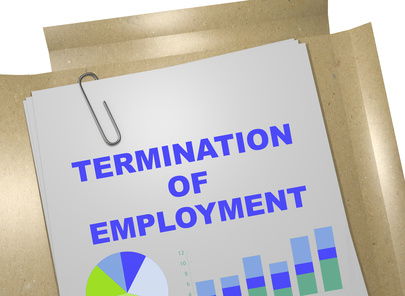Lawyers deal with a lot of ‘what ifs’.
What if your employer didn’t follow the Acas redundancy selection process correctly? What if you were discriminated against? What if you were unfairly dismissed rather than being made redundant?

If you make a claim, you need to know what kind of evidence the employment tribunal will be looking for. Here are the main points:
Was there a genuine need to make redundancies in your workplace?
There is a genuine need for redundancy if your workplace closes, if your employer decided they need fewer workers (for financial reasons or because there was not enough business), or because your employer reorganised the company and your job was no longer required.
If none of these reasons apply to you but you were made redundant anyway, you can probably make a claim for unfair dismissal.
Did your employer followed a fair procedure when consulting the workforce and selecting who would be made redundant?
To establish whether or not your employer followed a fair procedure, the tribunal will want to know your answer to the following questions:
- When did your employer tell you about possible redundancies?
- Could they have told you any sooner?
- Before making a selection, did your employer consult all affected employees about ways to avoid redundancy?
- Did they carry out a selection process?
- Was the selection process fair?
- Were you told how selections would be made?
- Were you allowed to comment on selection methods in advance?
- If your employer used a scoring process, were you told what score you needed to achieve and what your actual score was?
- Were you given an opportunity to appeal?
Was it fair to choose you for redundancy?
If you were the only person doing that job, and your job was the only one that was no longer needed, it probably was fair that you were selected for redundancy.
If there were several people doing the same type of work as you, but you were the only one considered for redundancy, you might be able to claim for unfair dismissal or even discrimination.
Your employer should identify all those whose jobs may be at risk and use a fair selection process. Their decision will be based on what they know about you, your skills and your work record.
- Did your employer use a scoring process, such as ‘first in, last out’?
- Did they use a scoring matrix taking into account your appraisal and workflow records?
- Who did the scoring?
- Did they use evidence to support the scores?
- Was the scoring process discriminatory?
You have the right to see your own score but not the scores of your colleagues. To challenge the outcome successfully, you have to prove there was a flaw in the scoring process, such as producing appraisals that contradict your low score.
Note that the tribunal will look at whether the selection process was fair. If not, they will look at whether a proper process would have made a difference to you.
Did your employer make reasonable efforts to find you alternative employment elsewhere in the organisation?
Before you are made redundant, your employer should make reasonable efforts to find you suitable work in the company. (It might be enough to direct you to vacancies listed on the website or via the HR Department.)
- Were you asked to apply for another job?
- What were you told about the other job?
- Why you didn’t apply for the other job?
- If you were offered the other job, why did you turn it down?
- Were there other jobs available, but you weren’t offered one?
If you didn’t apply for other jobs that were available, or you were offered another job on a similar grade and salary but didn’t take it, you could have avoided redundancy and the tribunal may reduce your compensation.
You no longer need to pay a Tribunal fee to make a claim!
See our recent article: Great news: Employment Tribunal fees have been abolished
Need help?
For a free initial review of your claim, call 0808 168 7288 or Make An Online Enquiry>.
We have already helped thousands of people to win millions of pounds in compensation.
You have a choice of ways to pay, including ‘no win, no fee’.
We will also discuss the best methods of funding your case and seek to reach a solution that best suits your needs. This can involve a “no-win, no-fee” agreement if appropriate.
